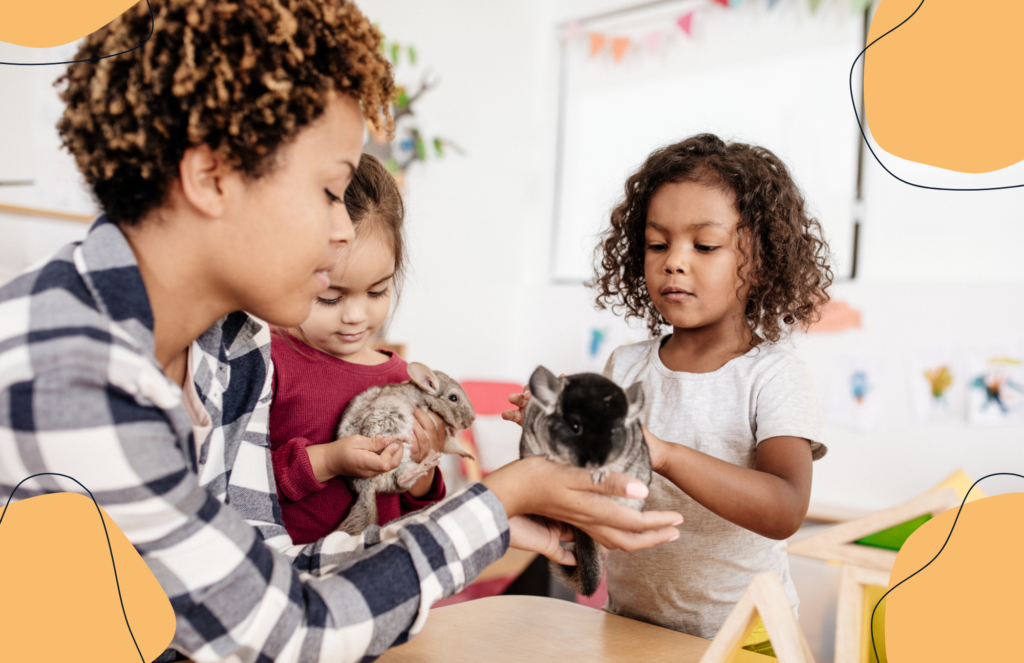Your cart is currently empty!

CDA Resources
Children’s play, plays a crucial role in early childhood development, offering numerous benefits that extend across physical and cognitive domains.
Play contributes to physical development when children engage in play activities that gross and fine motor skills. For example, children’s strength and coordination skills can be improved when children run, jump and climb during outdoor play. Activities that involve manipulating small objects, such as puzzles, building blocks or arts and crafts, help children to gain fine motor skills for later writing and self-care skills needed. These physical benefits not only support overall health and fitness but also lay the groundwork for more complex motor tasks as children grow.
The cognitive benefits of play are also vital. Play that involves cognitive skills fosters problem-solving and critical thinking. When children engage in imaginative play or games with rules, they learn to navigate challenges, think creatively, and make decisions. For example, constructing a fort with pillows or negotiating roles in a pretend game requires planning, reasoning, and the ability to adapt to changing circumstances. This type of play encourages children to explore concepts like cause and effect and enhances their capacity for critical thinking, ultimately cultivating a mindset that values curiosity and exploration as they progress through their educational journeys.
Educators play a vital role in facilitating play, which is essential for early development. One way teachers can facilitate play is through designing spaces where children are able to explore and engage with various materials. This involves arranging the classroom environment with distinct areas for different types of play, such as imaginative play, construction, and sensory experiences, using materials that stimulate creativity and curiosity.
An essential aspect of this role is ensuring that the environment is adaptable and responsive to children’s interests and developmental needs. Educators should regularly assess and modify the space based on observations of children’s play behaviors and preferences, introducing new materials or setting up challenges that encourage problem-solving and cooperation.
For example, many years ago as a preschool teacher and director, I had the opportunity to observe children during daily activities.
Moreover, educators play a crucial role in establishing a positive social atmosphere where collaboration and interaction are encouraged. They model respectful communication and support conflict resolution, helping children learn to navigate relationships and develop important social skills. By fostering an inclusive environment that respects diverse backgrounds and abilities, educators empower all children to participate in play, thereby enhancing their sense of belonging.
Educators must also actively engage with children during play, not just by providing resources but by participating as co-players, asking open-ended questions, and facilitating discussions to deepen the learning experience. In sum, educators create an environment that encourages play by designing safe, engaging spaces, adapting to children’s needs, fostering social skills, and actively participating in the play process. This holistic approach helps children develop critical cognitive, social, and emotional skills essential for their overall growth.
Integrating play into the daily routine is important for promoting learning and development in early childhood, particularly through the lens of Lev Vygotsky’s concept of the Zone of Proximal Development (ZPD). Vygotsky (1978) defined the zone of proximal development as a period in which skills are developed and learning occurs from a child’s potential and from the support given to them by others. Vygotsky emphasized that children learn best when they engage in activities that are just beyond their current capabilities, which are supported by peers and adults. When educators purposefully embed play into daily activities, they can create opportunities for children to explore these zones, fostering cognitive, social, and emotional development.
For instance, educators can offer daily routines to include various types of play—such as role-playing, storytelling, or cooperative games—during arrival time, circle time, and transitions. During guided play, teachers can observe children’s interactions and provide scaffolded support, such as prompting children with questions or suggesting new activities that expand on their interests. This approach allows educators to target skills and concepts while encouraging children to take on challenges at their own level of learning.
In summary, the impact of play on child development is profound and multifaceted, laying a solid foundation for both physical and cognitive growth is essential for lifelong learning and well-being.
